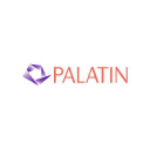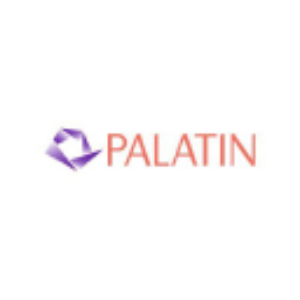Welcome to our dedicated page for Palatin Tech news (Ticker: PTN), a resource for investors and traders seeking the latest updates and insights on Palatin Tech stock.
Palatin Technologies, Inc. (PTN) generates a steady flow of news as a biopharmaceutical company centered on melanocortin receptor–based therapeutics. News coverage for PTN often highlights updates on its obesity, ocular, and retinal programs, as well as financing events and stock listing developments. Investors and followers can use this page to review how Palatin’s scientific, clinical, and corporate milestones evolve over time.
Recent press releases have focused on obesity program progress, including preclinical and clinical data for the oral MC4R agonist PL7737 and next-generation peptide MC4R agonists. Palatin has reported robust weight loss and favorable safety in preclinical models, Phase 2 data on co-administration of an MC4R agonist with tirzepatide in obese patients, and regulatory designations such as Orphan Drug status for PL7737 in LEPR deficiency–related obesity. These updates provide insight into the company’s efforts to develop mechanism-based obesity therapies.
Palatin news also covers its ocular and retinal pipeline. Releases describe Phase 3 MELODY-1 data for PL9643 in dry eye disease, including responder analyses showing complete symptom resolution across multiple endpoints, and preclinical findings for PL9654 and PL9655 in diabetic retinopathy that demonstrate inflammation resolution, vascular stabilization, and neuroprotection. Announcements related to the company’s collaboration with Boehringer Ingelheim for retinal diseases further illustrate how Palatin seeks to advance its melanocortin platform through partnerships.
On the corporate side, PTN news items detail public offerings, warrant structures, and exchange listing status, including NYSE American delisting proceedings, trading on OTC markets, a 1-for-50 reverse stock split, and the subsequent resumption of trading on NYSE American. For readers tracking PTN, this news feed brings together scientific presentations, clinical trial readouts, collaboration agreements, and capital markets activity in one place, making it easier to follow Palatin’s development trajectory and key disclosures.
Palatin (NYSE: PTN) reported fiscal Q1 2026 results and a corporate update on November 13, 2025. Key developments include a €2.0M upfront payment and a €5.5M research milestone from a Boehringer Ingelheim collaboration, an upsized $18.2M public offering closed November 12, 2025, and reinstatement of NYSE American trading under PTN on November 12, 2025.
Pipeline milestones: IND-enabling toxicology for oral MC4R agonist PL7737 with an IND and Phase 1 SAD/MAD planned for H1 2026; next-generation weekly peptide MC4R agonists planned for IND and Phase 1 in mid-2026. Fiscal Q1 results: $8.85M collaboration revenue and $4.7M net income; cash and equivalents were $1.3M as of September 30, 2025, with expected runway beyond December 31, 2026.
Palatin Technologies (NYSE: PTN) announced the closing of an upsized underwritten public offering on November 12, 2025, raising approximately $18.2 million of gross proceeds following full exercise of the underwriters' over-allotment option. The offering comprised 2,795,384 shares of common stock (or pre-funded warrants) and accompanying Series J and Series K warrants to purchase up to 2,795,384 shares each at a combined public offering price of $6.50 per share with accompanying warrants.
The company may receive up to an additional $18.2 million if milestone-related Series J warrants are cashed, though exercise is not guaranteed. Net proceeds are intended to support the company's obesity program, working capital and general corporate purposes. Closing restored the company's compliance with NYSE American listing standards and resumed trading under the symbol PTN on November 12, 2025.
Palatin (OTCQB: PTN) presented preclinical and clinical data at ObesityWeek® 2025 highlighting melanocortin-4 receptor (MC4R) agonists for obesity treatment.
Key points: oral MC4R candidate PL7737 showed dose-dependent weight loss in DIO mice, ~50% oral bioavailability and >3-hour half-life in rats, and no hERG/Ames findings; IND-enabling toxicology is underway with an IND and Phase 1 SAD/MAD trial planned for H1 2026 and clinical data expected H2 2026. A Phase II study (BMT-801) reported that adding low-dose MC4R agonist to tirzepatide increased weight loss, was well tolerated, and helped prevent weight regain. The FDA granted Orphan Drug Designation to PL7737 for LEPR deficiency–related obesity.
Palatin Technologies (OTCQB: PTNT) has announced a 1-for-50 reverse stock split effective August 8, 2025, at 5:00 p.m. EDT. The stock will begin trading on a split-adjusted basis on August 11, 2025, under the temporary symbol PTNTD for 20 trading days.
The primary objective is to increase the per-share price to meet NYSE American's Listing Qualifications. The reverse split was approved by stockholders on July 25, 2025, with an authorized range of 1-for-50 to 1-for-100. Shareholders will receive cash for any fractional shares, and the company's new CUSIP number will be 696077 601.
Palatin Technologies (PTN) has received a delisting notice from NYSE American due to its low stock price, resulting in immediate suspension of trading on the exchange. The company's shares will transition to trading on the OTC Pink Market under the symbol "PTNT" starting May 8, 2025.
The company plans to appeal the delisting decision by the deadline of May 14, 2025, though success is not guaranteed. CEO Carl Spana expressed disappointment but affirmed the company's commitment to advancing their business plan and increasing stockholder value. Palatin Technologies focuses on developing first-in-class medicines targeting the melanocortin receptor system.


